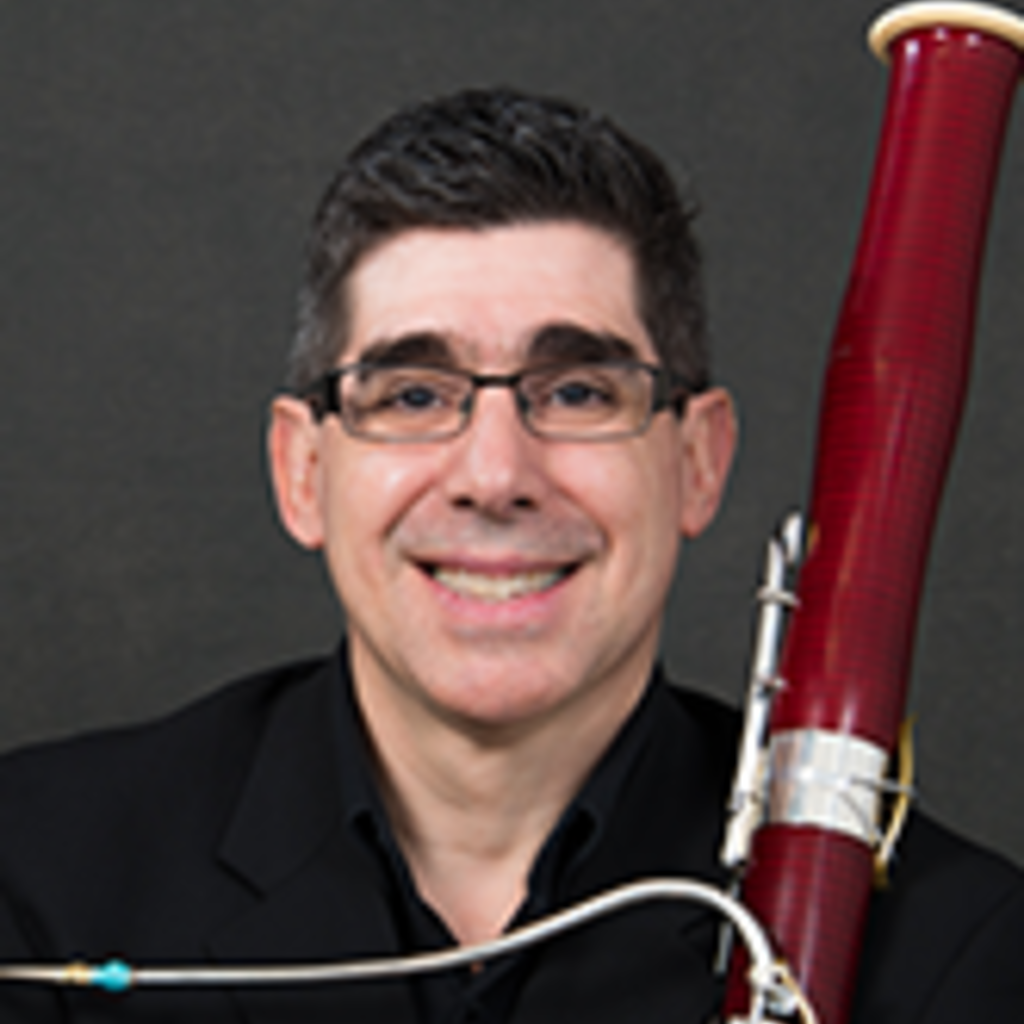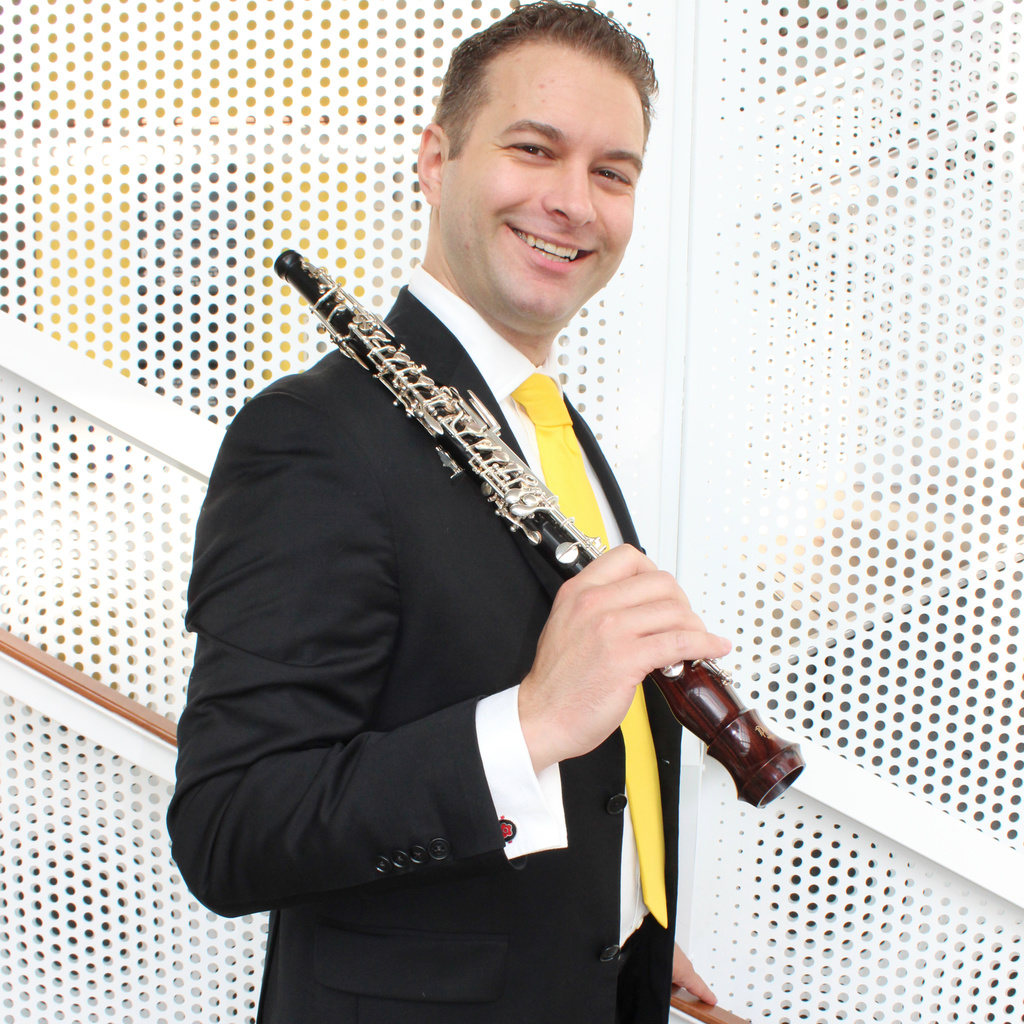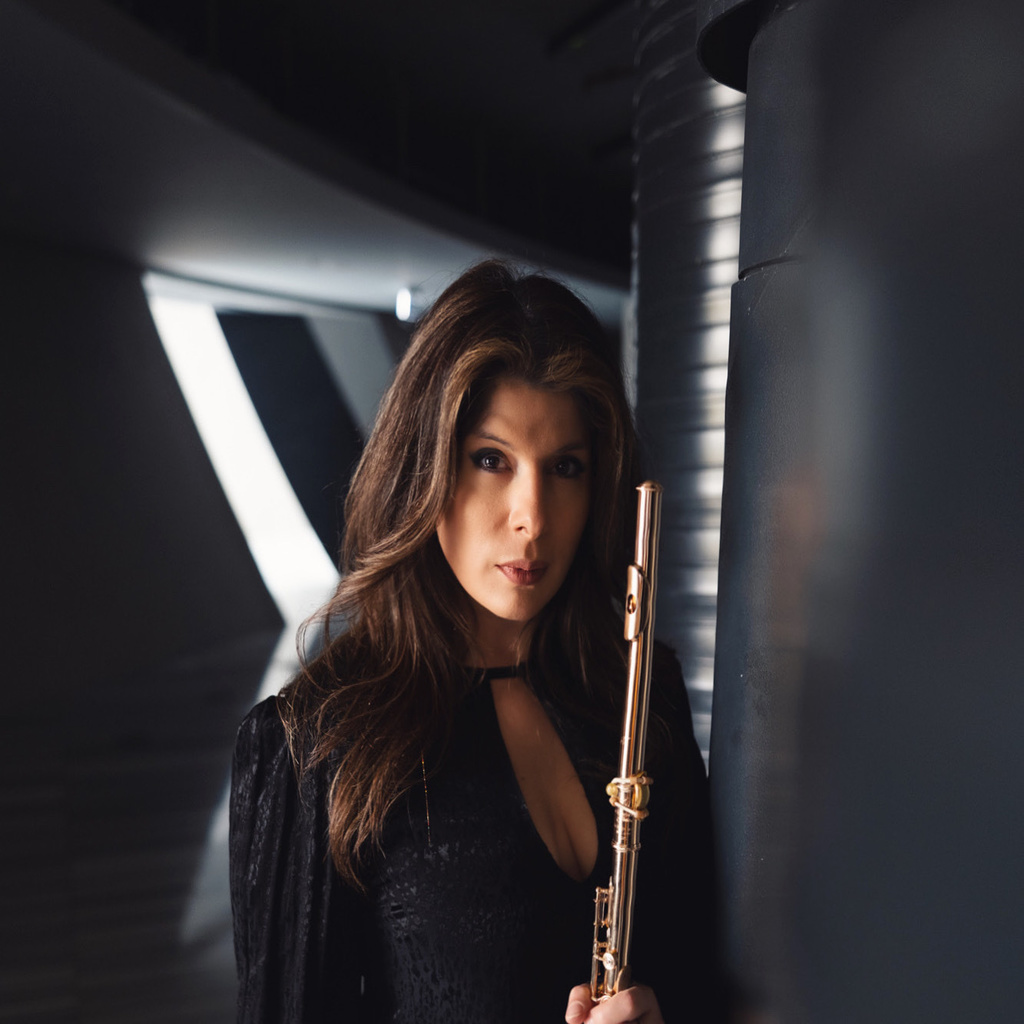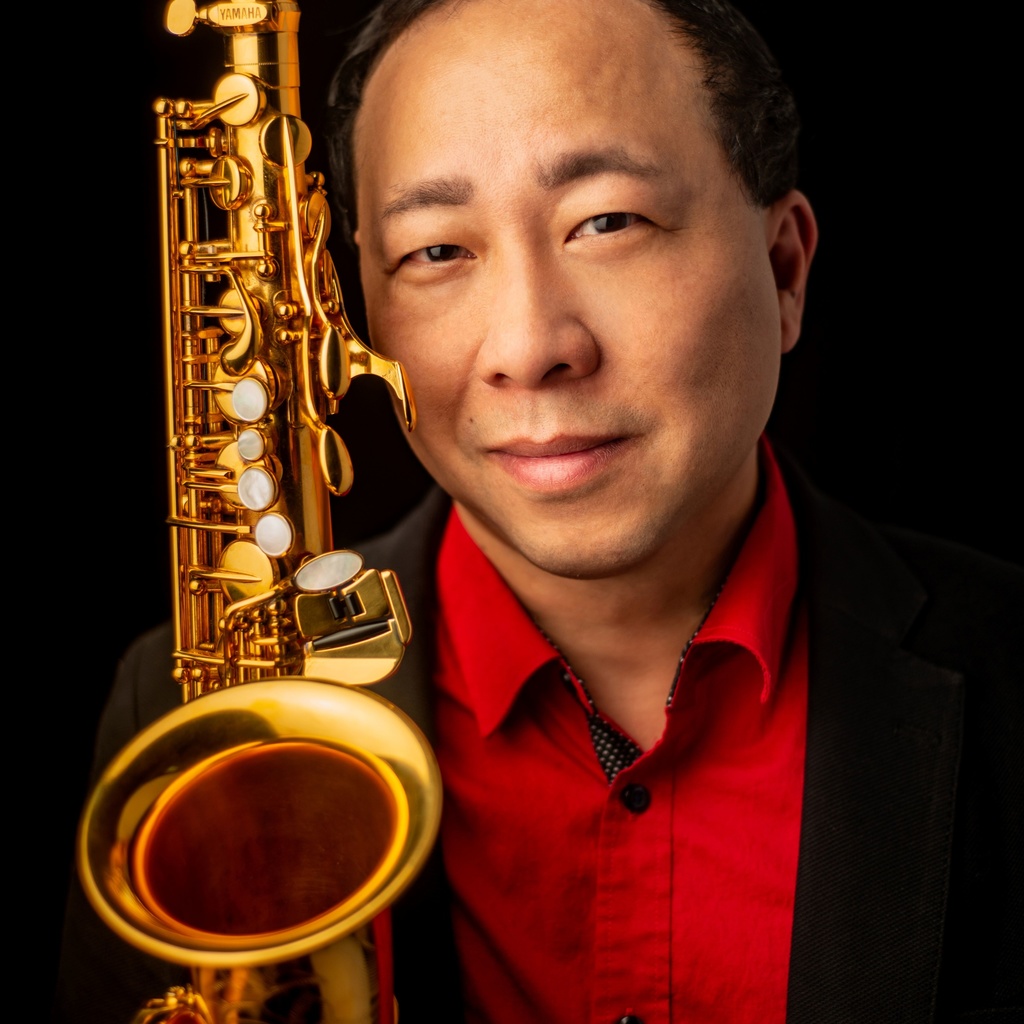Main navigation
Earn your DMA in Woodwinds
Learn about pursuing your Doctor of Musical Arts in Woodwinds at the University of Iowa School of Music.
Specific audition requirements
Completing the application by the deadline will enhance the possibilities of being admitted for the following fall semester; later applications will be considered if openings remain. Although an audition on campus is recommended, a recording, representative of current performing abilities, may be submitted. The audition should include representative works from the advanced solo literature.
Specific instruments may have different requirements for auditions. Please see the studio page for your specific instrument for any further details on audition requirements.
The D.M.A. degree in performance and pedagogy requires a minimum of 72 post-baccalaureate semester hours; of which 39 s.h. must be completed at the University of Iowa.
Specific admission requirements are:
- Minimum grade point average: 3.0
- Three letters of recommendation
- A current resumé, including programs of recitals given, repertoire studied, and a listing of present and former woodwind teachers
- Application and audition
- Application for admission to this degree will not be processed until an approved audition has been completed. Acceptance to the performance degree program in the woodwind area is dependent upon acceptance by the major professor and the approval of the Director of Graduate Studies. Completing the application by the application deadline will enhance the possibility of being admitted the following fall semester; later applications will be considered if openings remain.
Students pursuing a performance M.A. degree at the University of Iowa may use the Master's recital as the D.M.A. audition, provided the audition committee is notified of this intent prior to the recital.
For more information, please contact the woodwind area head Professor Nicole Esposito at 319-335-1676 or nicole-esposito@uiowa.edu.
Requirements and program planning
This information is intended to assist in your course planning but is not intended to serve as an official guide to graduation requirements. To confirm progress toward graduation, you should consult your advisor.
General requirements
- Introduction to Graduate Study in Music (MUS:5300), 2 semester hours
- Seminar in Music Research (MUS:7140), 2 semester hours
Music theory requirements
Students exempt from MUS:5200 through the advisory examination in music theory must complete 9 semester hours from the following:
- Counterpoint Before 1600 (MUS:4200), 3 semester hours
- Counterpoint After 1600 (MUS:4201), 3 semester hours
- Jazz Theory (MUS:4730), 3 semester hours
- Tonal Analysis (MUS:5235), 3 semester hours
- Non-Tonal Analysis (MUS:5236), 3 semester hours
- Analysis of Popular Music (MUS:5237), 3 semester hours
- Special Topics in Theory and Analysis (MUS:5240), 3 semester hours
- History of Ideas in Music (MUS:6210), 3 semester hours
- Theoretical Approaches to Music (MUS:6211), 3 semester hours
- Theory Pedagogy (MUS:6215), 3 semester hours
- Advanced Tonal Theory and Analysis (MUS:6250), 3 semester hours
- Advanced Non-Tonal Theory and Analysis (MUS:6251), 3 semester hours
- Advanced Theory and Analysis of Popular Music (MUS:6252), 3 semester hours
Music history requirements
Select from the music history courses in the following list. Only one 4000-level course (taken at the University of Iowa or equivalent transferred in from another institution) may count toward the 9 semester hours required:
- Music and Gender (MUS:4320), 3 semester hours
- Medieval and Renaissance Music (MUS:4325), 3 semester hours
- Baroque Music (MUS:4330), 3 semester hours
- 18th-Century Music (MUS:4335), 3 semester hours
- 19th-Century Music (MUS:4340), 3 semester hours
- 20th-Century Music (MUS:4345), 3 semester hours
- Advanced Jazz History (MUS:4350), 3 semester hours
- American Music (MUS:4355), 3 semester hours
- Jazz Matters (MUS:4360), 3 semester hours
- Studies in Film and Music (MUS:4610), 3 semester hours
- Teaching Music, History, and Culture (MUS:6305), 3 semester hours
- Topics in Musicology (MUS:6310), 3 semester hours
- Historical Approaches to Music (MUS:6312), 3 semester hours
- Topics in Ethnomusicology (MUS:6314), 3 semester hours
- Foundations of Ethnomusicology (MUS:6315), 3 semester hours
- Renaissance Music Notations (MUS:6326), 3 semester hours
- Music Editing (MUS:6375), 3 semester hours
Ensemble requirement
Major Ensemble (four semesters required), 1 s.h. each
Woodwind area requirement
- Applied lessons in major area (four semesters required), 2 s.h. each
- Applied lessons are taken each semester until the recital requirement is completed; requests for exceptions must be approved by the woodwind area.
- Wind Chamber Music (two semesters required), (MUS:3485) 1 s.h. each
- Chamber Music Residency Program (MUS:3489), 1 s.h. each
- Advanced Woodwind Pedagogy and Literature I (MUS:5101 ), 2 s.h.
- Advanced Woodwind Pedagogy and Literature II (MUS:5102 ), 3 s.h.
- Qualifying Recital (MUS:7899), 0 s.h.
- D.M.A. Recital #1 (MUS:7900), 1-2 s.h.
- D.M.A. Recital #2 (MUS:7900), 1-2 s.h.
- D.M.A. Recital #3 (MUS:7900), 1-2 s.h.
- D.M.A. Essay/Thesis (MUS:7970). 2 s.h. minimum; 6 s.h. maximum) (if student started coursework prior to Fall 2019, the range is 4-8 s.h.)
World language or secondary area of music
French or German proficiency (other languages must be approved by the woodwind area). Students can satisfy the proficiency requirement in one of the following ways:
- Completion of the fourth semester of the language at the undergraduate level with at least a grade of B, within the last 10 years.
- Testing out of the fourth semester of the language at the University of Iowa. Placement exams in French, German, and Italian are offered each semester by the UI Examination Service, 300 Jefferson Bldg.
- Completion of graduate language courses FREN:4911 French for Reading and Research or GRMN:5000 German Reading for Graduate Students (prerequisite GRMN:1002, 1020, or 1010).
OR,
- Secondary Area of Music: Minimum of 6 s.h. (attach the Secondary Area contract)
The Secondary Area will enhance their viability in the job market and broaden the student’s professional profile and competence. The student, the major advisor, and a professor from the secondary area will define this individualized component of the DMA course of study by the end of the first year of study. A contract listing the required coursework or other specific outcomes will be filed with the student’s records in the Academic Office. The required coursework will include a minimum of six semester hours. These hours may not include any courses required to fulfill other degree requirements. The student’s Comprehensive Examination committee will include a secondary area advisor, who will provide questions pertaining to the secondary area. Possible secondary areas include conducting, music education, jazz studies, theory, music history, or a secondary applied area. Secondary areas may not be specialized areas of the primary performance/pedagogy or conducting area.
Create your academic path
You'll find degree overviews, requirements, course lists, academic plans, and more to help you plan your education and explore your possibilities.
Current course list
The MyUI Schedule displays registered courses for a particular session and is available to enrolled students. The list view includes course instructors, time and location, and features to drop courses or change sections.
Add a minor
Any student admitted to a graduate degree program in the School of Music may add a theory pedagogy minor by completing the required courses.
Woodwinds faculty

Benjamin Coelho

David Cyzak

Nicole Esposito
Jorge Montilla Moreno

Kenneth Tse
Practice and perform
Need to book a music room, request an accompanist, check out audition information, rent a locker, or use a recording studio? Visit the Music Callboard for all scheduling and policy information.